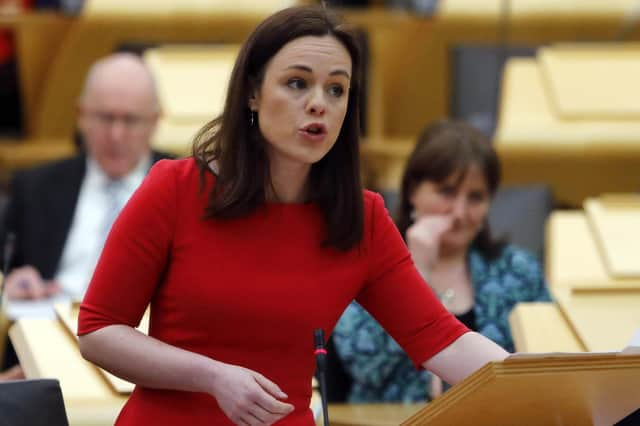Scotland’s economy could take almost three years to recover, think tank warns


The Fraser of Allander Institute has set out three scenarios in its latest Economic Commentary report.
Its central scenario predicts normality will return to the economy by August 2022, while the most optimistic prediction suggests February 2022.
Advertisement
Hide AdAdvertisement
Hide AdWith a coronavirus vaccine now being rolled out, it said there is “a greater likelihood of an optimistic scenario” than in previous reports.
But it said a pessimistic scenario involving business closures, rising unemployment and a slow rollout of the vaccine would result in the Scottish economy not reaching pre-pandemic levels until September 2023.
The think tank’s report said unemployment will rise to 7.5 per cent by the second quarter of next year as the furlough scheme is rolled back – around double the normal rate in recent times.
“With unemployment soon to rise and a renewed squeeze on wages across the public and private sector, it will feel like Scotland is in a recession for some time yet,” it said.
The institute said the Scottish budget – to be delivered on January 28 – will be set against a background of significant uncertainty, intergovernmental tensions that could be exacerbated by a no-deal Brexit and the Holyrood election in May.
It said the Scottish Government has limited scope to adapt its fiscal plans to the pandemic.
“There is a case for saying that current arrangements are not problematic – the Scottish Government has a good idea about what its likely minimum funding envelope is.
“But the dependence of the Scottish budget on policy choices taken in England will continue to be a source of tension, particularly when the economic and health impacts of the pandemic remain high.”
Advertisement
Hide AdAdvertisement
Hide AdFinance Secretary Kate Forbes will have “some difficult decisions to make”, the think tank said, with health “likely to absorb much of the Covid funding in 2021, leaving difficult decisions about how to balance remaining support between different sorts of businesses, household and organisations”.
The report warns the end of the EU Exit Transition period in January “may lead to disruption for many firms who have weathered the Covid crisis”.